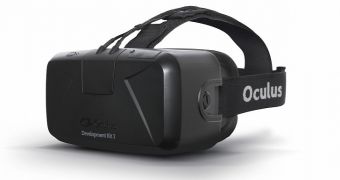Strauss Zelnick, the chief executive officer of publisher Take Two, says that the Oculus Rift virtual reality headset is anti-social and that it will only be adopted by a limited number of core gamers when it is finally launched as a commercial product.
Gamespot quotes the company leader as saying that he believes that there are players who want to become very immersed in the game worlds that they are exploring and who are willing to pay for and then use the new device.
At the same time, he thinks that, "a lot of people who play video games, for example my kids, they play with their friends sitting next to them, so that technology is not going to appeal to them. So I think it’s very much a core technology."
Zelnick has apparently never tried the Oculus Rift himself, but the company that he leads is willing to offer support for it as long as there's a player base to justify the initial investment required.
He adds, "It is an anti-social technology, but we will support it to the extent it’s brought to market and it works for our games. It is apparently great. Our people who have tried it, love it. I have not actually. Everyone says it’s great."
At the moment, the Oculus Rift has delivered two versions designed for game developers, with the second coming during the Game Developers Conference earlier this year.
The technology included in the virtual reality headset is continuing to evolve and the company says that it plans to launch a consumer version before the end of the year, although no clear date or price has yet been revealed.
Sony is also exploring the same kind of immersive experience with the Project Morpheus prototype, which is designed to be used exclusively with the PlayStation 4 home consoles.
Recently, ZeniMax Media has launched a legal action against the makers of the Oculus Rift, saying that they have broken a number of agreements and that they have used tech that did not belong to them to create the virtual reality headset.
It's unclear whether the case is headed for trial or if the two companies are negotiating a settlement.
Earlier in the year, Oculus VR was acquired by Facebook and the company says that it will continue to focus on the gaming uses of the tech before finding ways to utilize its long-term potential in order to enhance the social connections that can develop between its users.

 14 DAY TRIAL //
14 DAY TRIAL //